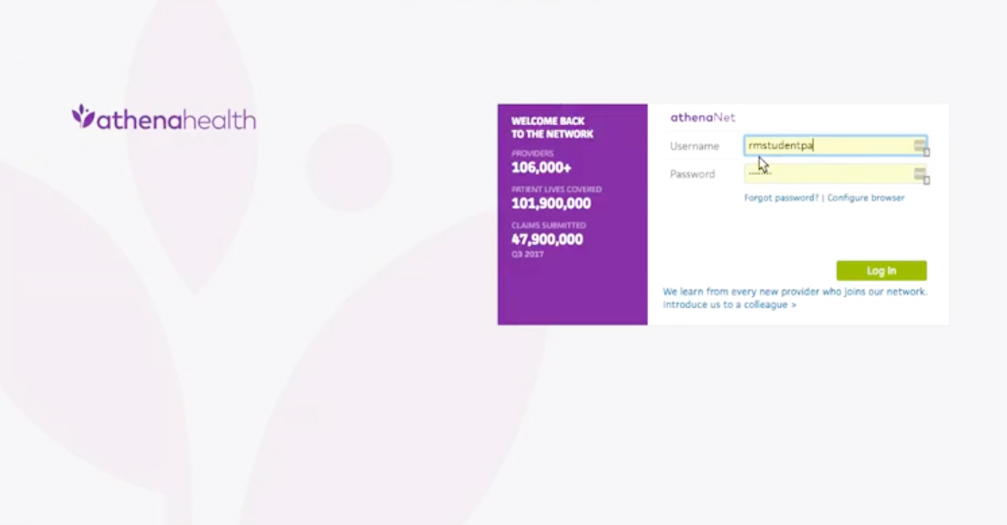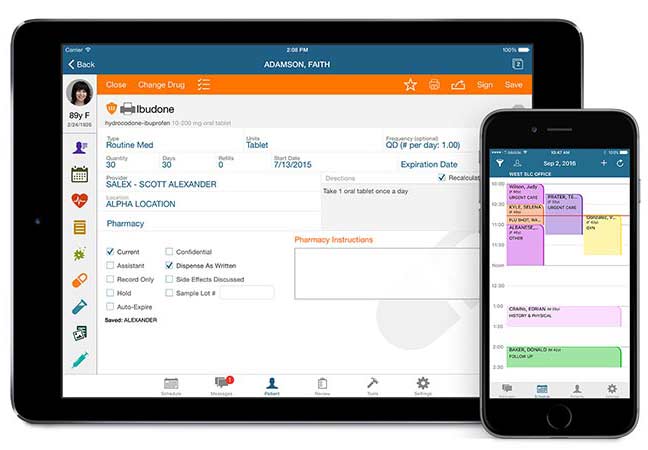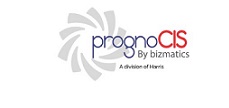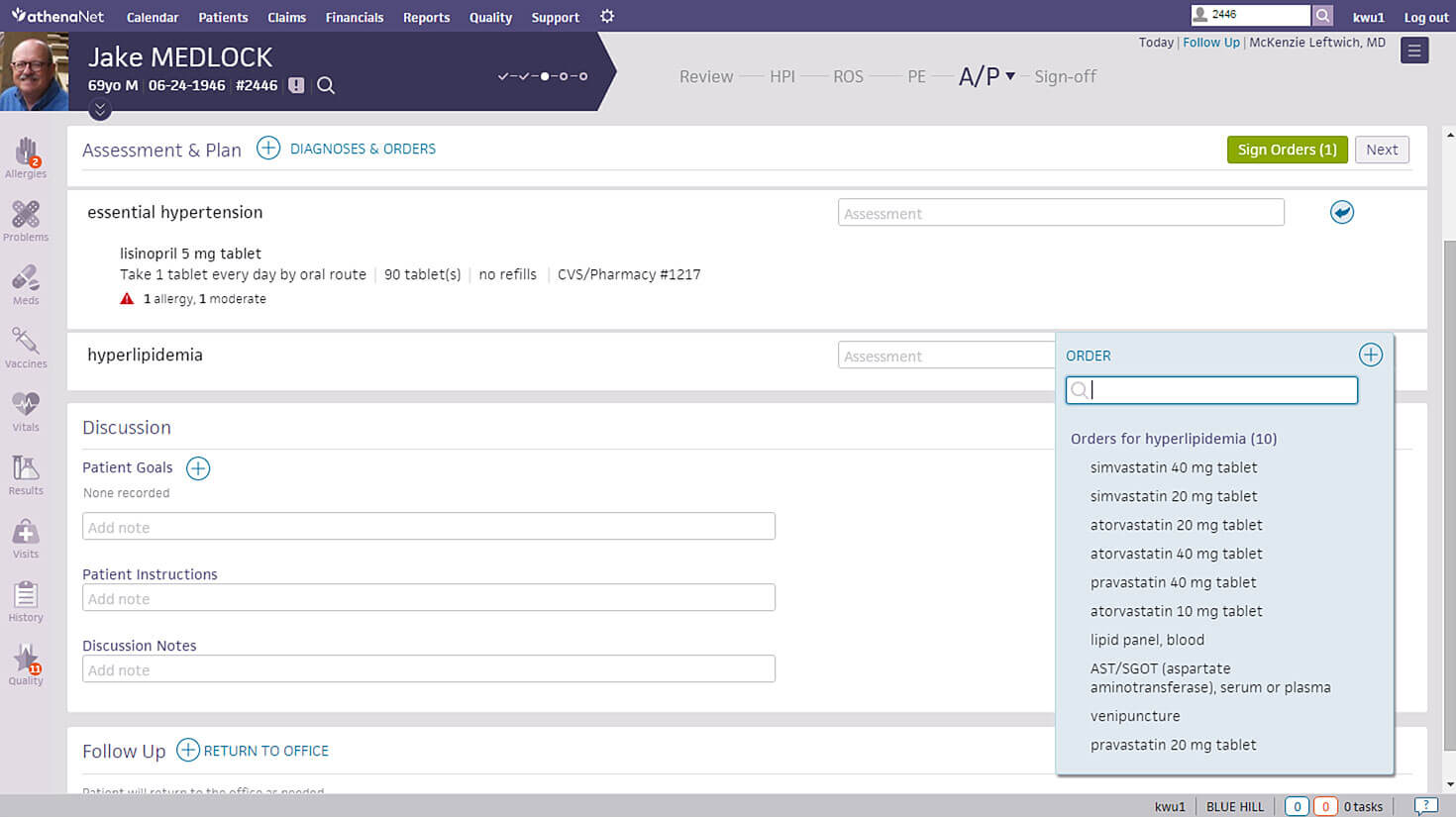Telemedicine Electronic Health Records (EHR) Software uses telecommunications technology to help caregivers and patients connect and interact remotely. Through the telemedicine platform clinicians, physicians and doctors can evaluate, diagnose and provide quick treatment plans to patients.
Telemedicine software technology is used to provide effective clinical services to patients including the use of follow-up visits, medication management, remote patient monitoring, and health consultations via video and audio modules. Recently both healthcare providers and patients are using telemedicine to provide health care to patients remotely. It is convenient and provides user-friendly and effective communication. Telemedicine EHR software adaptation rates have increased throughout the COVID-19 pandemic revolutionizing healthcare and providing timely access to primary care. According to the 2020 Telehealth Benchmark Survey, almost 95% of hospitals say that telemedicine is a long-term strategy that will prevail even after the pandemic is over.
Telemedicine electronic medical records software services have also been extended in hospital ICUs. According to MEDPAGETODAY the use of telemedicine in ICUs helps to save lives and improve patient outcome levels drastically.
To have a good understanding of how telemedicine electronic medical records software operates it is advisable to know about the important features that are present in a good telemedicine platform. Before selecting and choosing telemedicine Electronic Medical Records (EMR) software for your practice, you should go over the key features that are common:
Telemedicine Electronic Medical Records software solutions should provide seamless integration with the users existing Electronic Health Records Software to maintain workflows maintain efficiency and reduce any errors.
It is extremely necessary that your Telemedicine Electronic Medical Records (EMR) Software solution provides integrated live audio and video communication platform to seamlessly communicate with the patient.
CT scans, x-ray images should be directly accessed from the telemedicine software
Customized and specialized workflow and documentation features should be available for different practices.
Telemedicine EHR Software should have a browser-based system to ensure zero software installations and maintenance.
This enables the provider to decide upon the availability of telemedicine appointments.
The selection process can be quite overwhelming with many vendors in the health care market. To simplify your decision we have pointed out the following factors that need to be considered before the actual purchase is done.
Telemedicine should cater to your practice size and offer full functionality for your particular medical practices. Many free trial facilities are made available for users to see the software at work to realize its potential.
It is very important and crucial that the telemedicine software platform is HIPAA Complaint to ensure the security and protection of sensitive patient data and images. HIPAA Compliance certification means that the software meets all security updates.
Cloud services are flexible and provide better opportunities for integration and interoperability. It makes sure that accessibility is offered round the clock and on the go for primary, dental and mental healthcare.
What is an Electronic Health Records (EHR) Software?
Looking for Electronic Medical Records Software (EMR Software) is a time-consuming project. With over 600 EMR/EHR and Practice Management Software companies today, there are many things to consider when thinking to start using or to switch your Electronic Medical Records Software (EMR Software). You must make sure that you have covered every aspect involved before making a final decision. The term EMR Software or EHR Software (Electronic Medical Records) merely represents maintaining medical records for patients electronically or using a computer system. Specially designed software enables physicians and other medical professionals to store extensive sets of patient data ranging from patient demographics to detailed clinical information, such as medical history, social history, lab reports and more.
EMR Software by Specialty
Since all medical providers (MDs, DOs, PAs, NPs, LCSW, OT, etc.) work distinctly based on their background and medical specialty, EMR Software or EHR Software must accommodate the unique style and documentation requirements. Examples of such specialty-specific features include the ability to annotate images or capability to store before/after photos for Pain Management specialists and Dermatology specialists respectively. Similarly, other specialties such as Pediatrics, Oncology, Podiatry, Ophthalmology, Neurology, Nephrology, Dialysis Centers, Rheumatology and Chiropractic Care require their unique set of specialty-specific features to simplify adoption.
Meaningful-Use
Since the introduction of the HITECH Act, healthcare IT has undergone a massive transition starting from the widely recognized Meaningful Use program to what is now known as MACRA, the Medicare EHR Incentive Program. The Meaningful Use program has transformed and now formed part of the four components of the new Merit-Based Incentive Payment System (MIPS), which itself is a fundamental part of MACRA.
For some medical practices, the transition from paper-based records to EMR Software (Electronic Medical Records Software) has not been a simple one. Regardless, realizing that the benefits of utilizing ONC Certified EMR Software far outweigh the hassle and challenges associated with it – ensuring a viable future, most practices today have successfully transformed their clinical and administrative operations to EMR Software.
EHR Software Benefits
Aside from ensuring tangible financial incentives and profitability, practices converting to EMR / EHR Software have seen the following benefits:
- Improved Practice Efficiency
- Improved Profitability and Revenue Cycle (Medical Billing Services)
- Patient Engagement(via Patient Portal)
- Decreased Stationary Costs
- Better Care Coordination
- Enhanced Security and Safety (Cloud Storage & Back-ups) – Cloud-based EMR Software
- Connectivity between doctors & hospitals across the country – Health Information Exchange (EMRs with HIE connectivity)
EHR Software Based on Practice Size
Not all EMR Software vendors are suitable for hospitals and/or clinics with multiple specialties or providers. Similarly, EMR Software vendors designed for larger organizations such as hospitals or multi-provider clinics do not usually support a solo doctor practice and/or a small medical enterprise. Budgetary constraints aside, many other factors will make an EMR Software vendor viable for your medical practice. From solo provider clinics to large multi-provider and multi-specialty clinics, every practice has unique inherent challenges that must be addressed by their respective Electronic Medical Records (EMR) Software vendor.
Small or Solo Provider Practices
A small doctor’s office not only has a limited number of staff members but their EMR Software budgets are also extremely low compared to a large enterprise such as a hospital. Due to these budgetary constraints, many providers simply choose to employ Free EMR Software or choose an affordable EHR Software vendor with a low fixed monthly fee. Cloud-based access is one such important requirement so that these providers can access patient charts even from home when needed.
Large practices
Larger group practices generally comprise more than fifteen or often twenty medical providers. These practices usually provide medical services that fall under various medical specialties (Orthopedics, Pain Management, Surgery, Chiropractic Medicine, Family Medicine, etc.). Therefore, these practices require support for multiple users to access the system simultaneously, as well as for the Scheduling software to accommodate multiple locations, providers and resources such as Dialysis Chairs, procedure room allocation, etc. These practices also keep replacing or adding staff members and need a scalable solution.
Medium-Sized Practices
These practices usually consist of 5 to 10 medical providers often belonging to the same medical specialty. Their requirements are more stringent, while their budget is also considerably large. Aside from specialty-focused requirements (EMR Software by Specialty), these practices also require unique features such as interoperability, dedicated customer support, multi-device support as well as extensive reporting functionality to keep an eye on the overall performance of the practice.
Hospitals or enterprise organizations
EHR companies such as Epic, Cerner, AllScripts, NextGen, Athenahealth, IMS by Meditab, eClinicalWorks, Meditech, McKesson, MEDHOST, etc. usually target and provide solutions for larger corporations like Hospitals, ACOs, PCMH, IPAs, CINs (Clinically Integrated Networks), Public Health Departments, etc.
These customers have the most elaborate list of requirements, which are usually documented in the form of an RFI or RFP to assess and shortlist vendors that can meet them. The requirements consist of features like inventory management modules, interface with local labs (LIS), machines and diagnostic equipment along with drug dispensing (Pharmacy Management Software) and Electronic Medication Administration Record (EMAR), etc. These entities also require for the EHR Software also need to integrate with multiple other software and medical devices.
Why does your practice need EMR Software?
Since the introduction of Meaningful Use, most healthcare practices simply have little or no choice but to convert their practice operations to an EHR system. However, most providers today select the EHR vendor of their choice that best suits their specific needs and must perform an extensive search to evaluate all available options before they find one that is suitable. Most potential EMR Software buyers in the market today have the following in common:
- Do not know what they are looking for
- Know exactly what they want but don’t know where to start or find it
- Relying on advice from colleagues using EMR software already
Although #3 is ideal, every provider and practice workflows are unique and therefore what works for one provider may not suit the other. “One size fits all” simply doesn’t apply in the world of healthcare IT. Software experts and industry specialists are an ideal source of information, advice and ultimately ensuring that the right decision is made.
What to Look For in a Potential EHR Software Vendor
EMRs include several types of software based on specific applications or functionalities:
Cloud-based EMR software
Small doctor offices benefit the most from Cloud-based EMR Software technology since minimum to no upfront cost or maintenance is required. Secondly, accessing EHR Software is possible from any location, given the availability of internet access. This type of software is also device-independent in most cases and can be accessed using devices such as Smartphones (Android & iOS), iPhones, iPads, laptops, and desktop computers.
Mac EMR Software
Apple dominates the digital devices and computer market in the US today, so it is no surprise that many providers are specifically looking for their EMR Software vendor to support Mac Operating System (Mac EMR Software). Not all vendors today work on a Mac device, so looking for a vendor with native support for Mac devices is essential to ensure that the software performs on existing hardware at the practice and does not require more investment in computer systems.
EHR Software Essentials
Electronic Health Records (EHR) Software for practices offering specialties should provide tools and templates to reduce the workload of the practice by featuring seamless documentation of the daily clinical workflow of the specialties and specifying the areas of concern. It should also provide improved methods for capturing text, scanning images and reports, e-prescription, and management of raw data.
This is the most significant requirement for most software buyers today as the software must comply with the standards and guidelines set by the Office of the National Coordinator (ONC). Online repository details all software vendors and details related to their respective compliance with the measures set by the ONC (Click here). Software that complies with these standards has undergone rigorous testing and met a benchmark level defined by the federal body. The software testing done during this exercise checks all areas of the EMR Software system from Patient Portal access to the way the EHR Software communicates with other programs and entities like labs, Pharmacies (via e-Rx), hospitals, HIEs, etc.
Integrated Practice Management (PM) Software
With competition rising in healthcare IT, EMR Vendors providing integrated Practice Management systems as part of their overall software package easily outperform rivals with standalone EHR Software including those that may provide a specialty-specific EHR Solution. EMR Software companies with integrated Practice Management solutions often tend to provide extensive reporting capabilities to track practice performance and manage the business operations better.
Integrated Medical Billing Software
The operations within a medical practice can be streamlined by an EMR Software. One such important operation is billing for services rendered and communications with insurance companies. Medical Billing Software, therefore, works best when integrated with Electronic Health Records Software. All clinical documentation seamlessly conforms to the required standard and forms a financial document that can be electronically sent to payers (insurance carriers) to verify and process at their end. This simplifies the operations and ensures all parties are on the same page when it comes to the financial health of the enterprise. Medical Billing Software helps practices and Medical Billing managers generate claims, patient statements, verify patient eligibility and more. This software is ideal for practices that want to handle billing in-house and integrate it with EMRs.
Security
An EMR Software must ensure the safety and security of patient records while ensuring privacy and HIPAA compliance for patient/doctor communication (Patient Portal). This is a paramount concern for physicians and HIPAA compliance should be guaranteed at all times by the EHR Vendor. Most Vendors today (Epic, Cerner, Athenahealth, AdvancedMD, PrognoCIS, Modernizing Medicine, eClincalWorks etc.) are aware of the importance of HIPAA compliance and have taken steps to ensure the safety of patient records security in every section of the EHR Software using advanced tools like data encryption, to enhance the security of the EMR software.

Athenahealth EHR Software
Specific Services
One of the decisions your practice will have to make is whether you want just an EMR system or one with an integrated Practice Management for Medical Billing and Patient Scheduling. There are advantages to having both together but there have been cases where some practices only go for one in case they had unique requirements that a vendor could not fulfill, or they had already paid a hefty amount for a PM system and weren’t looking to replace it yet.
Ease of Use and Training
Doctors are not IT professionals, and though some might be tech-savvy, it would be egregious to expect them all to be experts on the EHR software. Ease of use is essential to make the transition from paper to electronic smooth, as well as day to day practice to go along without a hitch. If the software is too complicated and hard to understand, it’s a waste of precious time and needlessly aggravating. Some vendors offer free training while others don’t; make sure you ask for training when you purchase if your staff needs it.
Specialty Based EMR Software
Every medical provider works uniquely, thus some EMR Software Vendors today have decided to tailor their EHR Software for a particular specialty or a limited number of specialties. This has been the inevitable culmination of the EHR Software journey, as more and more specialists were required to start using Electronic Medical Records Systems. Since the majority of the EHR Software suppliers at the time were focused on selling to all medical providers regardless of specialty, specialty providers soon learned that their software did not necessarily meet the requirements or their unique clinical workflow. Therefore, the demand for a specialty-specific EMR System gave birth to a specialty-focused EMR Software market. Vendors starting introducing specialty-specific EHR Software and today there are unique EMR Systems available for the most demanding specialties such as Oncology, Dermatology, Chiropractic Medicine, Orthopedics, Pain Management, General Surgery, Alternative & Holistic Medicine, etc.
Customer Support Quality
Your EHR Software may meet all your expectations, but what happens when you encounter an issue? It’s not inevitable for any software application to malfunction or behave unexpectedly from time to time. This is where you must pick up the phone and speak to one of the customer service representatives of your EMR Software Company. A good customer support team can address even your most complex concerns in a knowledgeable and skilled manner, fixing small glitches while you are on the phone. Major issues or changes to the behavior of your Electronic Medical Records application will require not only a knowledgeable customer service rep but one that will go the extra mile and pass on your concerns to the appropriate departments to fix the issue and ensure customer satisfaction. Similarly, a bad agent will just make things worse. Some vendors provide support as a part of the plan you’re already paying for, while others charge extra for support. Scout the market, read reviews, or just ask point blank if there will be a special support team assigned to each practitioner and whether you’ll be charged for the service. Most importantly, however, you must speak to existing users of the EMR Software company to learn about their experience with the customer support team.
Hidden Cost
There are varying price lists out there, some offer free services, while others charge an arm and a leg for specialty services. Either way there will be hidden costs that you might get to know about later. Fix your budget and talk to vendors you interview about hidden costs within the contract and whether services such as training and support are free.
Mobility
Smartphones have changed the dynamics of mobile usage. Handheld devices are easy to carry around and can be used for any number of uses. Most people are ditching the cumbersome PC for a handheld device. Doctors mostly use iPads or Tablets in the examination room to take down patient symptoms, check the history, and note down the prescription, so the vendor must have a mobile application that is synced with all the mobile devices being used in the practice.

AdvancedMD Mac EMR
Markets Trends to Be Aware Of
Like anything else, the EMR industry is also subject to changes. From new technology to legalities and governing bodies, everything is constantly changing. Here are some of the changes I think it would do well for you to keep track of.
Meaningful Use Changes
At a recent health care conference, Andy Slavitt, the administrator of the Centers for Medicare & Medicaid Services, declared that Meaningful Use was over, and would be replaced by the end of this year with something better. But a deeper look into the claims revealed that meaningful use would very much still be there, only much improved.
The new measures aim to make the reporting and benchmark for reaching the required reports much easier and laxer than under Meaningful Use, along with other changes. Yet it is safe to say that none of these changes will make an impact until the end of 2017.
Cloud-Based Services
Recent research found that only 25% of practitioners are interested in a web-based model and only 50% are willing to have it as an initial model that eventually transitions to cloud-based. Cloud-based EMR software cuts down on steep upfront costs for client-servers and can be hosted on any device that has a web-browser. It’s no surprise that more and more vendors are transitioning to Cloud-based Software because the industry demands are changing.
Latest Updates in EHR Software
Get Ready for the New Generation of EMR Software
Advancements in fields of Artificial Intelligence and Analytics have induced a boom in the Healthcare IT industry. EMR Systems and Practice Management Software are becoming highly optimized and increasingly robust giving birth to a newer generation of EMR Software. Don Woodlock in an in HealthcareITNews claims that the benefits of this new generation include reduced costs, improved flexibility, and customization of EHR Software.
Physician Burnout: A Global Problem
Adam C. Uzialko in Business.com talks about how Electronic Medical Records (EMR) Software help reduce healthcare burnout. Burnouts are becoming more and more common in the healthcare industry and are becoming a great concern. Medical Software such as EMR Software and Practice Management Software allow optimized workflow and reduce the stress and feeling that cause burnout. Healthcare IT Software like telemedicine EMR Software also helps in reducing work stress and improve physicians’ work efficiency.
NYC consolidates its EHR systems onto one Epic platform
Epic EHR Software rolled out a new H2O system (Health + Hospitals Online) in Brooklyn at one hospital and 10 community health centers including NYC Health + Hospitals and neighborhood uniting 40,000+ users and 70+ patent care facilities on a single platform. EMR Software features decision support tools, Revenue Cycle features, and Patient Portal.















